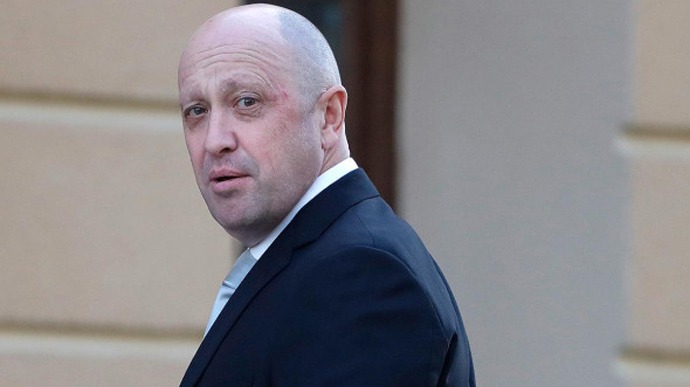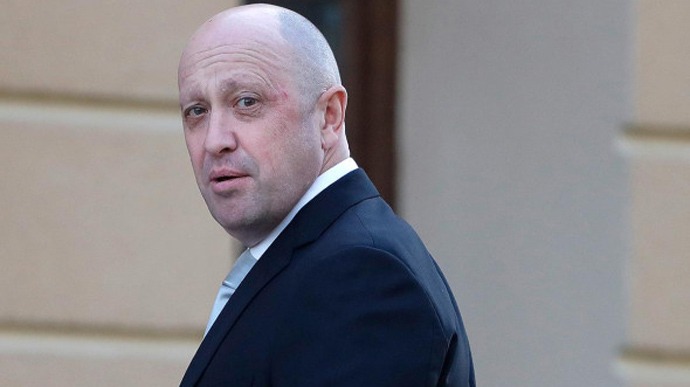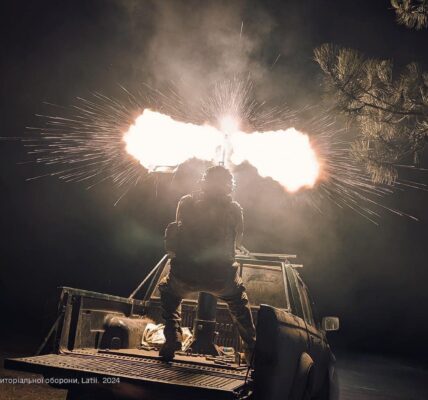IN 1547, Ivan IV Vasilyevich, more commonly known as Ivan the Terrible, became the first Tzar of all Russia and his monstrous practices of torture and brutal executions – including boiling, impalement, roasting over an open fire, and tearing limbs off – continue to inform and shape Russian political culture 475 years later. Methods have changed; murders in Moscow have not – all arising, symbolically, from Ivan’s own killing in 1581 of his son and heir apparent, Ivan Ivanovich, in a fit of rage.
Five centuries later, however, it is Russian President Vladimir Putin who is killing and wounding the sons of Mother Russia in chasing his faltering “special military operation” in Ukraine – upwards of 100,000 according to General Mark A. Milley, chairman of the US Joint Chiefs of Staff. Paradoxically, it is not their senseless deaths and maiming that trouble Russia’s political and military elite, let alone the oligarchs, rather, it is because Moscow is being easily cornered and humiliated on the battlefields of Ukraine – nearly daily – by Kyiv and domestically are being perceived as losing to NATO and its “satanic” western culture.
Kings’ heads roll in times like these and Putin’s neck, likely, will be no exception in his role as a modern-day Russian Tzar. Pretenders to his Kremlin throne await and one in particular, Yevgeny Prigozhin, the notorious one-time shadowy founder of the Wagner Group, is subtly beginning to challenge Putin for control of Russia’s military – and, undoubtedly, in time, likely for control of all of Russia. As winter nears, the shadows enveloping Putin are darkening rapidly and – portentously from Putin’s standpoint – Prigozhin’s Grigori Rasputin-like pugilistic shadow looms largest.

Ivan the Terrible’s filicide led to a bloody and turbulent 15 years of Russian history between 1598 and 1613 – known as “The Time of Troubles.” Russia, post-Putin, will be no less tempestuous and given Moscow’s nuclear arsenal, arguably, this period in Russian history – if not world history – could be the most tumultuous in the nation’s existence. Fissures and cracks are already developing in Russian state-controlled media, including, by example, utterances such as “we never should’ve laughed at Ukraine” as reported by Russian media expert Julia Davis in the Daily Beast. Discord is increasing among Russian milbloggers and siloviki – and the rash of “suspicious” deaths of Russian oligarchs are glimpses of troubles to come.
Prigozhin, 61, initially, was Putin’s modern-day version of a court jester – albeit, of a culinary kind. Known as “Putin’s chef,” he first came into Putin’s orbit in 2001 when his riverboat restaurant, named New Island, hosted the Russian president and then French President Jacques Chirac for dinner on the Neva River in St. Petersburg. In reality, however, Prigozhin – the one-time street hotdog vendor who parlayed his cart into a catering empire – has far more in common with a drug cartel “meth chef.”
Wanted by the FBI for criminally interfering in the US 2016 presidential election using the Internet Research Agency, LLC as a social media “troll factory,” Prigozhin is a convicted felon and served nine years in a Russian prison for “robbery, fraud and organizing prostitution [of minors].” In Putin’s Russia, however, having “friends in low places” – as Garth Brooks once recorded in a song – can lead to friends in high places. It did just that for Prigozhin. Straight to the heart of Putin’s regime and inside the red crenelated walls of the Kremlin.
Putin’s kingdom, since its inception, is, in essence, one large pyramidal drug-like cartel. Putin, presently, sits atop, and is both enabled and protected by Federal Security Service (FSB) and its (not so secret) federal police force – Putin’s armed enforcers, if you will – operating from their headquarters in Lubyanka Square in Moscow. Underneath the FSB sits Russian state-controlled media, corporate and industrial oligarchs including Prigozhin, the Russian Orthodox Church, the Russian Foreign Ministry, the Duma, and the 22 Republics comprising the Russian Federation – all, simultaneously, jockeying back and forth for position and influence within the pyramid’s third tier of power.
Notably, missing, by design, from that third tier is the Russian military itself. Politically, it has been existing at a subterranean level of the Kremlin ever since Russian Minister of Defence Georgy Zhukov arrested Lavrentiy Beria after the death of Joseph Stalin in 1953, thereby clearing the way for Nikita Khrushchev to assume power. Apart from a failed KGB and military coup d’état attempt against former Soviet Premier Mikhail Gorbachev in 1991 in the waning hours of the Soviet Union, Russia’s military has largely subsisted as a grifting and feeding ground for Moscow’s oligarchs.
To date, that widespread and endemic corruption has been the glue that holds Putin’s pyramid of power together, yet, nowhere has Russia’s self-defeating dependence on graft been more exposed or more threatening of Putin’s hold on power than the role it played in undermining the combat readiness of Russian troops, logistics, and equipment in Ukraine. As a result, essentially, the Kremlin has been fighting three wars. One against Kyiv. Another, a proxy war against NATO – and the third, a war against what is described as “systemic [Russian] sleaze.”
Prigozhin, calculatingly, is adding a fourth and potentially risky domestic war. The Wagner Group is, in effect, in a high stake, winner-take-all uncivil civil war with the Russian Defence Ministry and its central leadership. Many of whom, including Defence Minister Sergei Shoigu, are personally close to Putin. Incensed by Russia’s military failures in Ukraine, Prigozhin, according to US officials, “personally told Putin his military chiefs are mismanaging the war.”
Russian Colonel-General Alexander Lapin, heretofore Moscow’s commander of the Central Military District, was likely Prigozhin’s first victim. Grey Zone, a Wagner-aligned channel on Telegram, began heavily criticising Lapin after the fall of Lyman. Intended or not, this has been widely viewed as the outbreak of “a power struggle between [Russian Chief of the General Staff Valery Gerasimov and Shoigu] and Russian nationalists.”
If accurate, as it likely is, then in addition to the Russian military being undermined by systemic corruption from the top-down, then it is also being roiled by an inside ground-up obstinacy, if not insurgency, by the Wagner Group. If so, given that the Wagner Group was only founded eight years ago in 2014 by Dmitry Utkin and Prigozhin, it is a remarkable flex of power not dissimilar to the initial Bolshevik “October Revolution” victories in 1917.
Prigozhin’s insinuation of the Wagner Group into the Russian military, notably, extends into the Kremlin’s military intelligence arm: the Main Directorate of the General Staff of the Armed Forces of the Russian Federation (GRU). The Wagner Group’s co-founder Utkin “served in the GRU until 2013” and was “a veteran of both Chechen wars.” Significantly, the Wagner Group’s HQ is located at a Russian military base in Molkino – part of the Krasnodar district in southwestern Russia – and “operated jointly by the 10th Separate Special Purpose Brigade of Russia’s GRU and the Wagner Group.”
Prior to Ukraine, Prigozhin, according to Marat Gabidullin, a former “right hand man” of the chef-turned-warlord, asserted in an exclusive interview with National Security News’ Sean Rayment, that also appeared in The Times, that his former boss is content to be Putin’s “guard dog.” In Gabidullin’s view, Prigozhin lacks a sufficient “power base” and Putin could “erase” the Wagner Group in “two days” with just a “click.” Maybe, but Putin also purportedly thought he could conquer all of Ukraine in ten days.
Now into the tenth month of the war in Ukraine, Putin has grown weaker and his “guard dog” has grown decidedly stronger. Further, Prigozhin has begun assembling what he once lacked: political influence and backing in Moscow. Much of it is coalescing in and around the Telegram milbloggers and siloviki as a result of his pugnacious wielding of the Wagner Group in Ukraine and elsewhere in pursuit of Russia’s military and foreign policy objectives. Long absent in Putin’s power pyramid, their voices are collectively becoming stronger – and Prigozhin is amplifying their reach and effect.
Prigozhin is symbolically using a sledgehammer to do it, as well as to bloodily announce his arrival on the public stage domestically and globally. Yevgeny Nuzhin was his first public relations victim; however, the Wagner Group prison recruit who tried defecting will not be his last. Nuzhin’s summary execution sent a deafening message to the Russian public: Prigozhin intends to fight and win in Ukraine no matter the cost. Not content with merely a Russian audience, Prigozhin in the face of the European Union Parliament’s declaration labelling Moscow as a “state sponsor of terror,” had a blood-soaked sledgehammer personally delivered to a representative of the 27-member organisation.

Putin and his FSB enablers, likely, are taking note. Having weakened Putin’s base of support in a purge of the FSB after the intelligence failures in Ukraine came to light in April, Putin must view with growing alarm Prigozhin’s rising political influence and power in Moscow – and his increasing boisterous assertiveness. Prigozhin, in Ian Fleming terms, is now The Man with the Golden Sledgehammer, and Putin has to be wondering if that sledgehammer may soon be taking aim at him. Even guard dogs turn on their masters when threatened. So too might the man who would be Putin’s king.
After all, Marat described Prigozhin as a “dangerous man who should not be underestimated.” When asked in a heretofore unpublished part of the interview with Rayment whether Prigozhin is a man to be feared, Gabidullin answered: “He is a phantom, a demigod, and his word is law. And if you don’t follow him, you will be beaten, or fined, or locked in an iron cage for days.”
In other words, a modern-day reincarnation of Ivan the Terrible. Some things never change in Russia, even after 475 years. Europe and America beware. Russia is likely to get far worse before it gets better. “Prigozhin the Terrible” might soon be upon Moscow and brandishing a golden sledgehammer as his sceptre and Putin’s balding head as his orb.





















































































































































































































